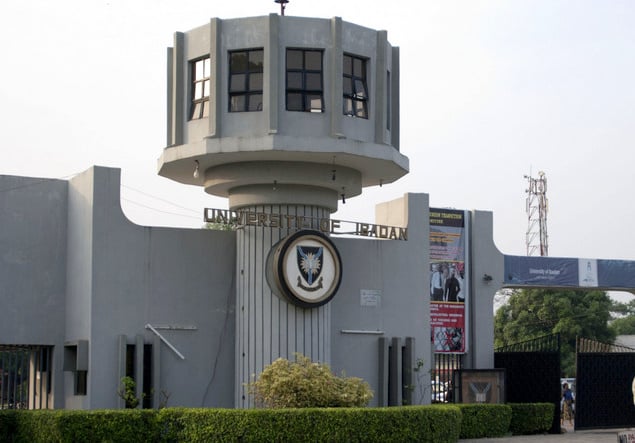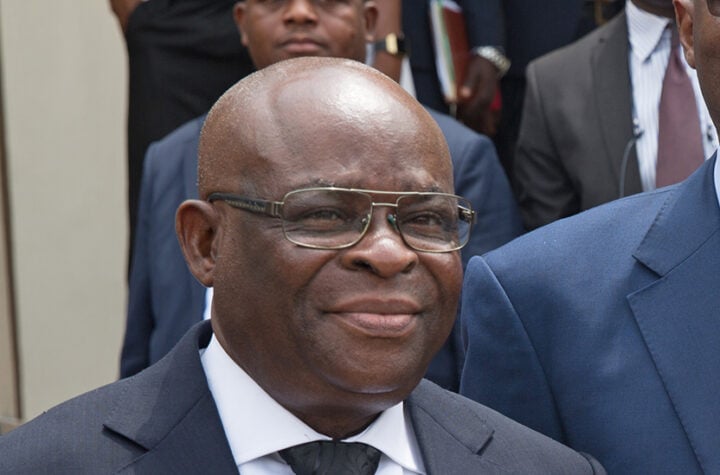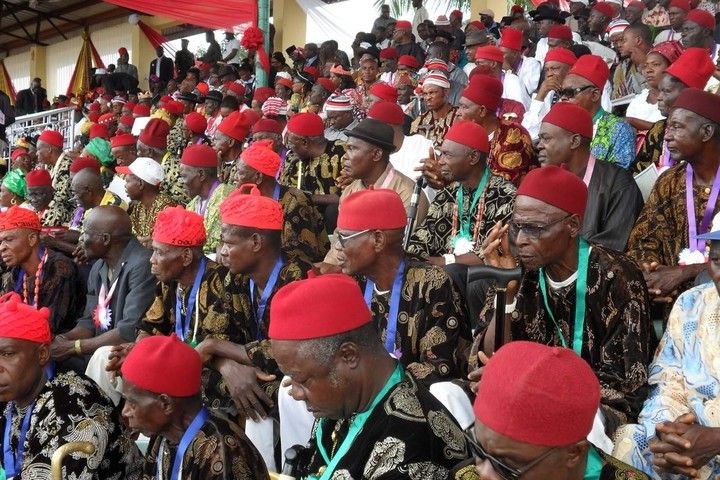BY DAVID MBA AND VAL EKECHUKWU
Are Nigeria’s 160 universities doing enough to support the country’s industrial growth? Our findings suggest that they are not. Compared with five rival emerging global economies – South Africa, Egypt, Thailand, Turkey and Brazil – Nigeria lags behind on all the measures we used.
If published research by universities, for example,could be seen as points won by football teams in a global league, a patriotic Nigerian fan would be staying away in embarrassment. For by the time ‘team Nigeria’ wins a point for their published research – or ‘scholarly outputs’ – the Thai and Egyptian teams have two, the South Africans three, the Turkish at least six and the Brazilians 10.
If the Super Eagles showed this sort of form, they would be unknown in Africa, let alone around the world!
Of course, universities are not football teams. They are more important than that. Because the growth of any economy is dependent to a large extent on the knowledge base developed by universities. They should be helping to build a country’s brain, while also creating the skills for a workforce to compete in an increasingly competitive global economy.
Advertisement
Universities also play a critical role in supporting the advancement of local industries, driving innovation and ultimately creating new jobs. Achieving these outcomes requires a national strategic vision that is matched with investment and governance.
The future of Nigeria seems bright. It is predicted to be the first African nation to reach $1trillion in GDP by 2030. The continent’s biggest economy and most populous country, Nigeria has over 160 national and private universities.
With over 60 per cent of the population under the age of 25, the demand for university places far exceeds current capacity. The rapid growth of private universities provides some recourse in addressing the growing demand.
However, the impact of the universities on the economic growth of the nation cannot be simply limited to churning out graduates. How well do Nigerian universities perform in their support for driving industrial growth?
A comparative analysis covering the last five years (2013 to 2108) and including the biggest emerging global economies – SouthAfrica, Egypt, Thailand, Turkey and Brazil – shows only limited success.
A warning note is sounded by The 2018 Times Higher Education world university rankings. Only one Nigerian University is listed in the top thousand; University of Ibadan (ranked between 801 to 1000). This compares to eight universities for South Africa, with its best-performing University – University of Cape Town – ranked 171st. Egypt has nine listed, Thailand 10, Turkey 22 and Brazil 32.
Advertisement
To compare the economic impact of Nigerian universities against these countries, three methods have been generally selected: the total scholarly output for all subject areas within each country; the global patents that cite scholarly output; and the number of scholarly outputs from academic/corporate collaborations for all universities. The figures are taken from those recorded by university data source SciVal*.
The results make worrying reading, as depicted in Table 1 and Figure 1. Although the Nigerian economy is the largest in Africa, it produces only 44 per cent of the scholarly output of South Africa and 32 per cent of Egypt.
More telling is the number of scholarly outputs undertaken with corporate/commercial organisations. Nigeria produces just 24 per cent of Egypt’s total, and 10 per cent of South Africa’s, even though the nation’s economy is larger than these two countries – 60 per cent larger than Egypt’s and seven per cent larger than South Africa’s. These two countries also have fewer universities than Nigeria: Egypt has 43; South Africa 26.
The same corporate /commercial shortfall is seen compared with Thailand, Turkey and Brazil. Nigerian University corporate collaborations is at 18 per cent, 10 per cent and 3 per cent of these three rival emerging economies. Scholarly output from Nigeria is also significantly less than that produced from these three emerging economies, see table 1.
Table 1 Comparative country university performance
Advertisement
A further measure of the impact of Universities is the number of research papers cited in global patents. On this front Nigerian Universities fare poorly yet again. They are cited at 16 per cent and 13 per cent in comparison to Egypt and South Africa; and just six per cent and four per cent of Turkey and Brazil. When taken collectively, Nigerian universities preform worst in all areas, see figure 1.
Figure 1 Graphical illustration showing relative performance of country universities with Brazil as the bench-mark (Data –SciVal*)
Given this context, how do individual universities in Nigeria compare, based on these measurements over the same period? The top 12 universities in Nigeria for scholarly publications were selected for this analysis, again based on data from SciVal*. The data used for comparative purposesincluded scholarly output, corporate collaborations, patents citing scholarly output and the number of times outputs are cited globally (citations).
Figure 2 shows the relative scores of these top 12 universities. University of Ibadan performs best, being top on three of the four categories we used. University of Nigeria, Nuskka, ranks second. University of Illorin had the maximum number of citations in global patents, albeit with only three citations. The emergence of a private University, Covenant University, is interesting. Its rapid increase in scholarly outputs over the last five years sees it reach the fourth ranked Nigerian University in this category.
Figure 2 Graphical illustration of four metrics showing relative performance of the top 12 universities within Nigeria (Data –SciVal*)
Advertisement
Nigeria’s relatively poor performance in comparison to the other leading emerging economies is stark. Based on these statistics, it is difficult to see howthe National University Commission’s (NUC) mission statement can be accomplished. That mission is “to ensure the orderly development of a well-coordinated and productive university system that will guarantee quality and relevant education for national development and global competitiveness”.Our own research has not found that breadth of scholarly research that can support industry, drive innovation and ultimately create jobs.
What does all this imply for the future of Nigerian universities? There is a dichotomy for any university, of course. Should the emphasis beon developing knowledgeable and skilful graduates across a broad spectrum, for whom there are limited industrial opportunities? Or should the focus be to combine applied research and knowledge development, through teaching in specific subjects to spur and expand sectors critical to economic development?
The quintessential requirement of a university is that its research informs its teaching. This then underpins excellent learning for its graduates, whilst generating intellectual property and knowledge for innovation. Any nation that falls short in its applied research, we would argue, is extremely unlikely to play a leading role in developing the technologies, medicines, etc., to support and grow its economy and help ensure social mobility for its students.
Without question, the current levels of federal and state government funding for education are low. The education budget in the country has seen little or no change over the last few years. In 2018, this was just over seven per cent of the national budget. The total allocation for the sector was N605 billion, of which 71 per cent was for recurrent expenditure and 10 per cent for capital expenditure.
Advertisement
This level of funding, particularly given the level of recurrent expenditure, poses a conundrum; is it the level of funding that is responsible for the limitations in scholarly outputs? Or will it take more impressive scholarly outputs to attract more government funding? As an important aside, what is the role of private universities in supporting the government’s economic drive?
Funding for Nigerian universities has been a matter of great strife for over a decade. It has recently culminated in another indefinite strike by the Academic Staff Union of Universities (ASUU), the latest dispute also driven by the government’s plans to increase student tuition fees.
Advertisement
Internationally, The Gross Domestic Expenditure on Research and Development (GERD), as a percentage of GDP, is a widely used funding level indicator. Comparing levels assigned to research and development within Africa; South Africa is at 0.76 per cent, Egypt at 0.4 per cent, and Nigeria bottom of the table again at 0.2 per cent.
Outside Africa, Turkey has a GERD at one per cent, Thailand at 0.5% and Brazil at 1.1%. The 2010 world average is 1.77 per cent.
Whilst the case for an increase in government funding is stark, it is inconceivable that a significant increase can be achieved in the short term, given competing demands like transport infrastructure, security, power and health.Nigeria could choose to turn much more to the international market for investment. Funding available for GERD from foreign sources was a mere one per cent in Nigeria compared to 11 per cent in South Africa. But international investment would mean significant policy and governance changes; for instance, offering foreign institutions joint Faculties/Schools.
Advertisement
What is certainly required is a clearly aligned industrial and tertiary education strategy, targeting research funding via sources such as the government’s Tertiary Education Trust fund(TETFUND) to support sectors of national importance. More effective use of existing research funding could be achieved by aligning projects to address economic challenges across the broad sectors of industry. If outcomes can then be published in open access format, it ensures that information is shared with all interested parties within the country.
Also critical is setting expected outcomes for funding allocation, and developing monitoring systems to ensure maximum return on investment. Institutions that fail to deliver expected outcomes must be held accountable. Similarly, rewards for the generation of patents and evidence of direct economic impact, such as prototype development,must be encouraged though incentive schemes.
If it was not for the conviction of our brilliant academics, the state of the nation’s research would be significantly worse. It is a deplorable fact that some academics in modern Nigeria have to fund their own research. The government must capitalise on this in-kind contribution of its academics by matching their enthusiasm and commitment with research funding.
Of course, the government has control of funding for national and State universities. But how does it ensure private institutions are also aligned to its economic ambitions? This requirement could be addressed by aligning the university licences to a requirement to undertake research in a particular subject area that supports the national economic agenda. Perhaps centres of excellence in particular subjects could be created in each private institution.
The global digital economy is growing. A fourth industrial revolution has begun, focused on robotics, big data and artificial intelligence. It would be feasible for new private institutions to play a significant role in ensuring that Nigeria begins to develop the core competences, knowledge and skills to contribute and drive innovation in this new evolving industrial age.
In the longer term, the proposed establishment of the National Research and Innovation Foundation (NRIF) as detailed in the Science, Technology and Innovation (STI) Policy, 2011, is now urgently required, perhaps with a much broader remit. An established NRIF could have responsibility to fund research and development across all subject areas.
It is vital that the strategic vision of NRIF is aligned with the economic objectives of the nation. This will ensure the development of strong research in subjects critical to the economy. In addition, the Foundation will be critical in driving improvement in the quality of research and increased academic scholarly output.
As the nation moves to select a government in 2019, it is timely to review the missions of its tertiary institutions, setting the strategic vision and developing the monitoring to ensure that everything is aligned to the government’s agenda of economic development.
Only then will Nigeria’s universities start to emulate Nigeria’s national football team and start hitting some real goals –in Africa and abroad.
*Data source SciVal: “SciVal offers quick, easy access to the research performance of over 10,400 research institutions and 230 nations worldwide – so you can visualize research performance, benchmark relative to peers, develop collaborative partnerships and analyze research trends.”
Mba is Pro vice-chancellor, De Montfort University, UK. and a visiting professor, University of Nigeria, Nsukka while Ekechukwu is dean of engineering, University of Nigeria, Nsukka
Views expressed by contributors are strictly personal and not of TheCable.
Add a comment






